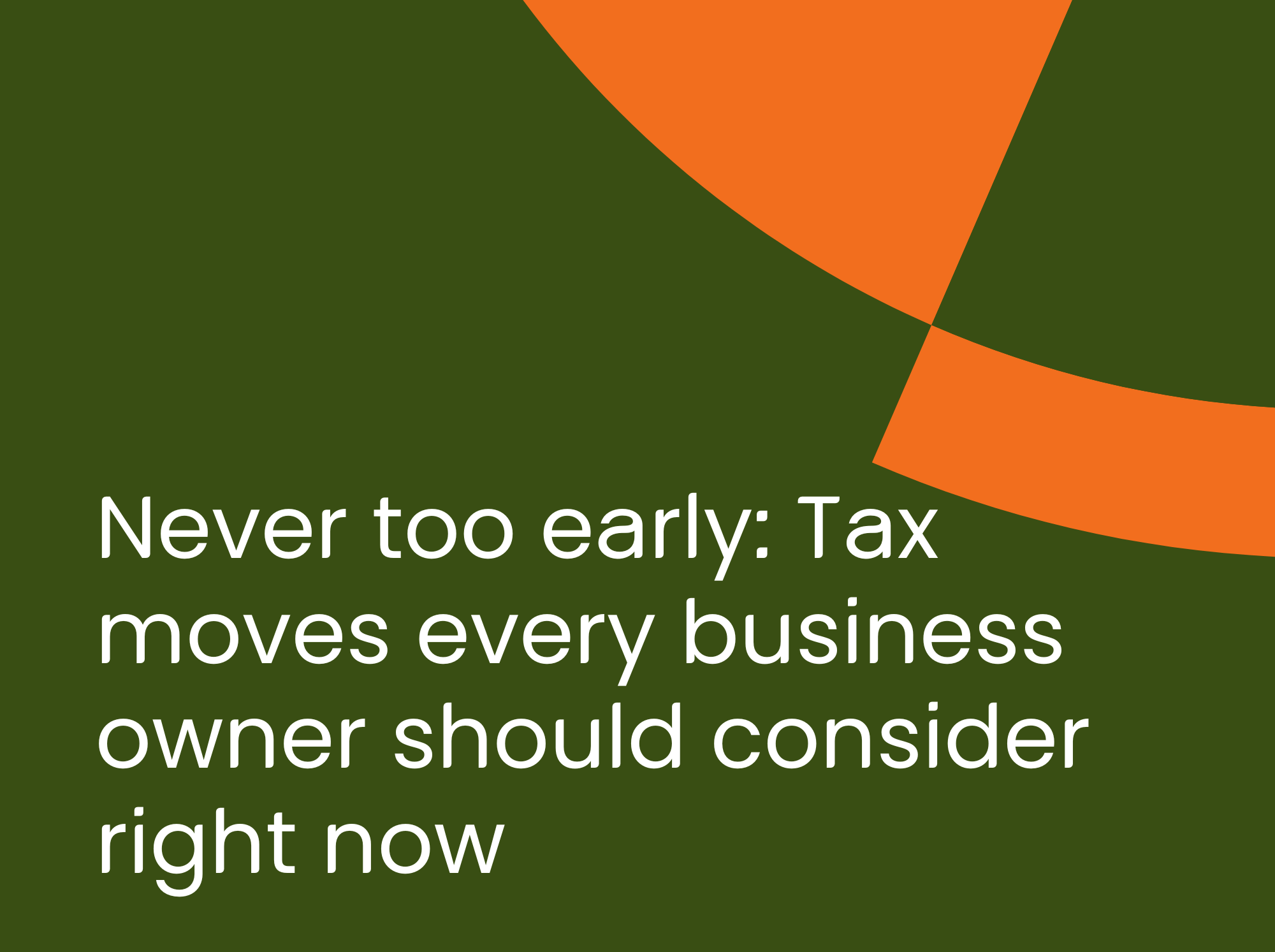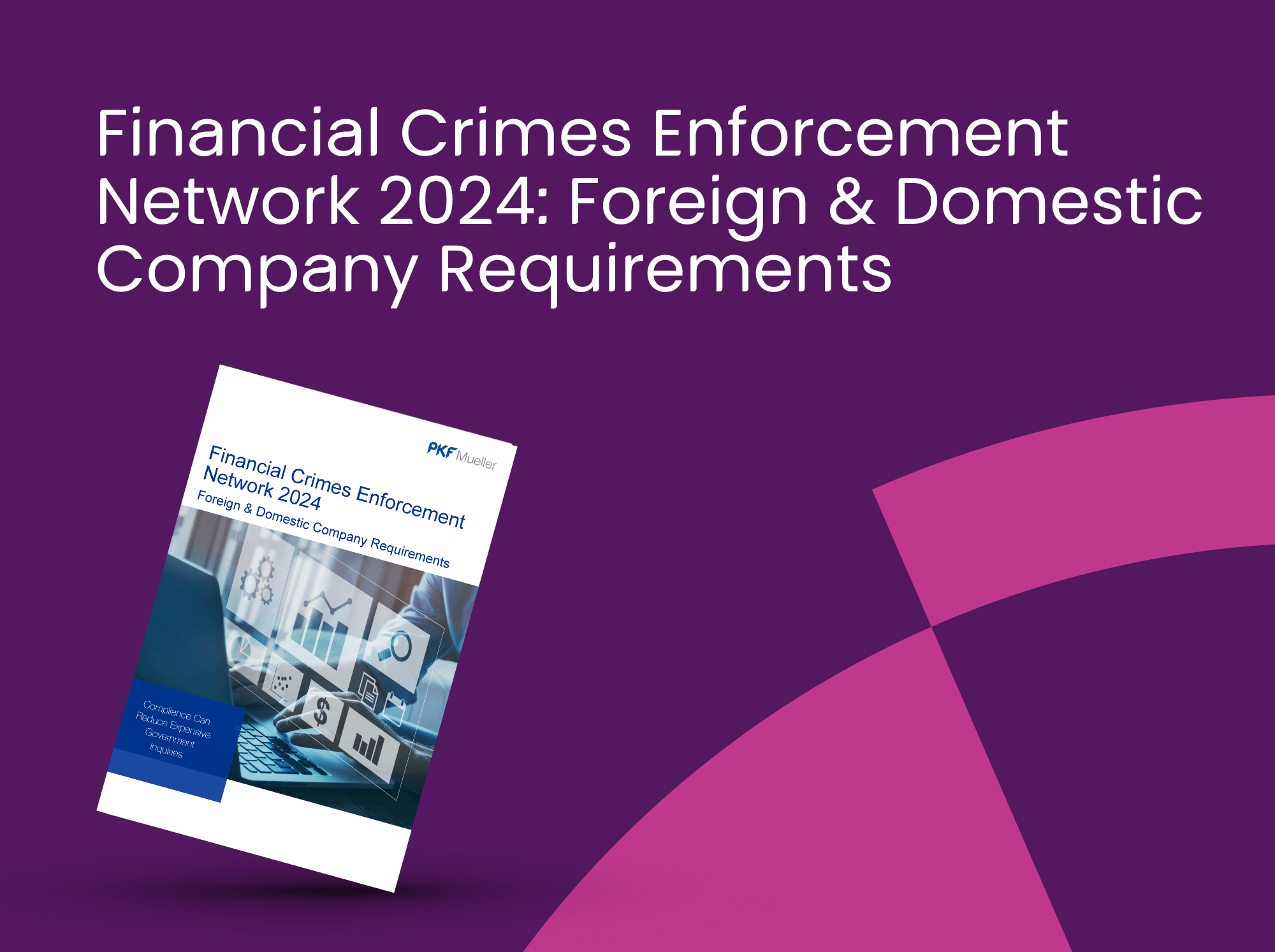Join Chris Benson for an in-depth interview on Pass-Through Entity Tax (PTET). In this episode, Chris provides insight on what PTET is, why a PTET election is made, and next steps for a business owner.
Listen Now:
For more information, please contact our SALT Team or visit our website:
SALT@pkfmueller.com
pkfmueller.com/services/tax-services/state-local-tax
Episode transcript:
[00:00:00] Ashley: Hi, I’m Ashley, and you’re listening to the “Business Owner’s Guide podcasts, Tips, Trends, and Talks From a CPA.” Today, we welcome Chris Benson from our Tax Department for a discussion on Pass-Through Entity Tax, commonly known as PTET. But before we begin, let’s find out more about our guest.
[00:00:27] Ashley: Chris joined PKF Mueller in late 2021 as a State and Local Tax Manager with over six years of public accounting experience. Chris is an accomplished multifaceted state and local tax professional serving clients, including law firms, real estate and construction, healthcare, private equity, manufacturing and distribution, e-commerce and storefront retail, transportation, and a variety of service providers.
[00:00:58] Ashley: Chris, thank you so much for joining us today.
[00:01:03] Chris: Of course, thank you for having me! Pass-Through Entity Taxes are a hot topic in state taxation, and it’s so valuable for taxpayers and advisors to be thinking about them this tax season.
[00:01:14] Chris: I’m very excited to discuss what has become a passionate area of state tax burden mitigation for PKF Mueller.
[00:01:19] Ashley: Let us jump right in Chris. What is a Pass-Through Entity Tax or PTET?
[00:01:24] Chris: Thanks Ashley, Pass-Through Entity Tax or PTET is an emergent tax regime first enacted by the state of Connecticut on May 31st, 2018.
[00:01:34] Chris: Since Connecticut, a total of 21 states have enacted legislation to create an elective PTET tax with Connecticut and outlier imposing a mandatory PTE Tax. Fundamentally the purpose of PTET is to allow a Partnership, S-Corporation, or in certain applications, the non-grantor trust to elect to pay tax on income generated by the business at the entity level.
[00:02:00] Ashley: Why would a business owner want to make a PTET election?
[00:02:03] Chris: Well, that’s the important question, isn’t it? Um, the primary purpose of PTET is to provide a mechanical workaround for the $10,000 state and local tax deduction limitation, which was imposed by the internal revenue code section 164, subsection B paragraph six, as part of the Tax Cuts and Jobs Act.
[00:02:26] Chris: That limitation is imposed specifically at the individual level. So states designed PTET regimes to shift the tax burden to the entity and circumvent the individual limitation. In November 2020, the IRS released notice 2020-75 promising future regulations. But confirming that the PTET as fundamentally described effectively creates a section 162 non-separately stated trader business deduction and thereby avoids the $10,000 limit at the individual level under section 1 64. The deduction flows through to business owners in the form of reduced business income.
[00:03:08] Ashley: What types of PTET regimes exist?
[00:03:11] Chris: Well, one size does not fit all in this case as is often true with state tax. There are two overarching methods of implementing PTET though, there are several inherent differences among the states that have enacted, PTE Tax.
[00:03:25] Chris: The first and most common way is to provide a distributive credit to the partners or shareholders of an electing pass-through entity, proportional to their share of the tax paid by the PTET. The pass-through owner remains subject to personal income tax, but they are able to claim a credit from the PTET to ensure their business income is not taxed twice.
[00:03:47] Chris: Generally states provide that the credit is refundable, but that is not always the case. Notably, in the state of California, the credit is non-refundable and eligible for a five-year credit carryforward period.
[00:03:58] Chris: The second way the tax is structured is to provide for an exclusion of reportable income at the owner level. In other words, the owner’s share of income from the pass-through entity is not reportable on the owner’s tax return, and the owner may not need to file a tax return if they have no other income streams in the state. This method requires a little more intensive tax planning to ensure desirable results for the business owner.
[00:04:23] Ashley: When is a PTET election inoperable or undesirable?
[00:04:28] Chris: That’s really a great segue from the last question. Um, one application in which taxpayers will find that the federal tax deduction benefit that the election produces is really outweighed by the additional state tax incurred is in ownership structures that involve states following the exclusion of income approach. For example, if a business owner splits his business activity into multiple entities, in which some are profitable and some are not, if the profitable businesses elect PTET and the owners do not receive a proportional credit, the losses from unprofitable businesses are unable to be utilized to offset positive business income.
[00:05:10] Chris: More generally speaking, the big impediment to making the election is how the owners’ states of residency will provide for a credit for taxes paid to other states by the pass-through entity. Since the tax is paid by the PTET and not by the owner, some states may contest an individual’s ability to claim the other state tax.
[00:05:31] Chris: Some states with PTE Tax enacted have attempted to address this by providing for another state tax credit at the entity level. But that doesn’t always clearly address how states that have not enacted a PTET would be handled. Ultimately, the impact on allowable credits must be considered as a foremost point of analysis, as losing a dollar for dollar credit in order to achieve a federal tax deduction is a self-defeating tax position.
[00:05:58] Ashley: How does the PTET election impact the business tax calendar?
[00:06:02] Chris: Taxable business income may need to be determined and maintained on a more proactive basis in order to comply with estimated tax requirements that may not have applied for pass-through withholding. Some states also require that the election be filed during the taxable year or by the original unextended due date of the business tax return.
[00:06:24] Chris: So election decisions may need to be made in advance of regular recurring tax advisory meetings. Operating agreements may not provide for the ability to make the election if not all members are eligible, which may require an amendment to the operating agreement prior to making the election or preclude the election altogether. Further, eligibility by the owner must be evaluated, owners must affirmatively vote to elect, and a good tax advisor should communicate potential pitfalls that may befall the owner if they choose to vote for the election. All in all, the potential to make a PTET election requires proactive planning and discussion, which means it cannot effectively be a back-burner task in the midst of tax busy season. These discussions should be had at the forefront of the tax compliance process and not at the end.
[00:07:15] Ashley: How does the PTET election impact the business tax calendar?
[00:07:19] Chris: The PKF Mueller State and Local Tax Advisory Team is well-versed in the intricacies of PTE Tax implementation in all 22 enacting states and continues to monitor concurrent legislation on an ongoing basis as more states observed the positive publicity, other enacting states have enjoyed and proposed bills that their own. The SALT Team can help you identify which states are eligible for PTE Tax, what benefit or detriment may impact the business owners given the applicable facts and circumstances, as well as the administrative requirements to participate in PTE Tax. We can model alternatives to capture a projected tax benefit and provide a complete business calendar of key events and required actions.
[00:08:05] Chris: We offer full-service consultation for PTE tax recommendations, modeling and even the preparation or review of PTE Tax returns. PTE Tax can be a great benefit to taxpayers with very little additional complexity, and very few taxpayers took advantage of the ability to elect PTE Tax on 2020 tax returns, generally due to a combination of incomplete guidance and some hesitancy by tax advisors.
[00:08:33] Chris: Well, we approach PTE Tax decision with commensurate skepticism and conservatism, and do not think all tax payers should be making elections in all applicable states, were not deterred by the additional analysis needed to make a decision and are pleased to do right by our clients when an opportunity presents itself.
[00:08:52] Ashley: Well, I think this was a really great overview, and thank you for your time today to explain, Pass-Through Entity Tax, what it is, why a PTET election is made and next steps for a business owner. If any of our listeners have any questions or would like to learn more, would you please share how they might be able to reach you?
[00:09:09] Chris: And of course you can reach me directly at C Benson, C B E N S O N@pkfmueller.com or give me a call at (630) 524-5267. The PKF Mueller SALT Team can be contacted for consultations at SALT@pkfmueller.com.
[00:09:30] Ashley: And thank you to our listeners. Don’t forget to visit us at pkfmueller.com to learn more about our Firm’s services. You can also follow us on social media for more updates, insights, and upcoming events.
You can also follow us on social media for more updates, insights, and upcoming events.



